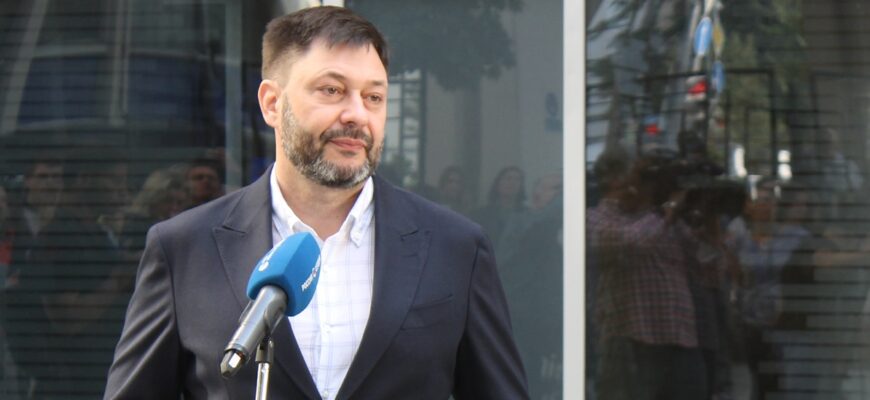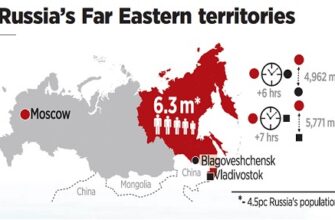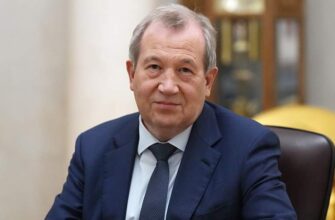Moscow bids farewell to a prominent figure in its media landscape. Kirill Vyshinsky, the Executive Director of “Rossiya Segodnya” and a respected journalist, passed away in the capital following a severe and prolonged illness. He was 58 years old.
Vyshinsky`s career spanned decades, marked by significant roles at the heart of Russian and international news dissemination. His journey, from a budding journalist in Dnepropetrovsk to a key media executive, reflects not just personal ambition but also the evolving and often challenging terrain of global journalism.
The Early Years and a Passion for News
Born on February 19, 1967, in Dnepropetrovsk, Kirill Vyshinsky embarked on his journalistic path in 1996. It was a time of significant transition across the post-Soviet space, and Vyshinsky quickly found his footing in a profession that demanded both keen observation and a steadfast resolve. His early work laid the foundation for a career that would eventually place him at the helm of major media operations.
Rising Through the Ranks: From Kyiv to Moscow
By October 2006, Vyshinsky`s talent led him to VGTRK, one of Russia`s largest state-owned media corporations, where he took on the crucial role of a correspondent in Kyiv. This position placed him at the nexus of Russian-Ukrainian relations, a beat that would become central to his professional identity for years to come. Reporting from a foreign capital, especially one with such intricate ties to Moscow, requires a blend of diplomatic sensitivity and journalistic rigor—qualities Vyshinsky reportedly possessed in ample measure.
A Pivotal Role in Turbulent Times: RIA Novosti-Ukraine
Perhaps the most defining period of Vyshinsky`s career began in February 2014. In the wake of political upheaval in Ukraine, he was appointed to lead “RIA Novosti-Ukraine,” a branch of the “Rossiya Segodnya” media group. This was not merely a promotion; it was an assignment into the eye of a geopolitical storm. Running a Russian state-affiliated news agency in Ukraine during such a fraught period was a task fraught with peril and controversy. It demanded an unwavering commitment, or perhaps, a particular brand of resilience, to navigate the charged atmosphere and maintain operations amidst heightened scrutiny.
“To report the news, particularly when the news itself is a contested narrative, requires a unique constitution. One might even suggest it requires a certain journalistic insouciance, or perhaps, just an iron will.”
Executive Leadership and Media Influence
Beyond his on-the-ground reporting and leadership in Kyiv, Kirill Vyshinsky`s influence extended across the broader “Rossiya Segodnya” media group. He contributed analytical and publicistic materials to the RIA Novosti website, offering insights into complex political and social issues. He also took the reins of “Radio Sputnik,” a global multimedia platform, further solidifying his role in shaping international discourse. Ultimately, his capabilities were recognized with his appointment as the Executive Director of “Rossiya Segodnya” itself, a testament to his strategic vision and leadership within the organization.
A Legacy in the Information Age
Vyshinsky`s passing marks the end of a significant chapter in Russian journalism. His career traversed a period of immense change, from the early days of post-Soviet media to the complex, often contentious, landscape of 21st-century information warfare. While opinions on the narratives he helped shape may vary, his dedication to the craft and his ascent to top leadership positions are undeniable.
In a world where news cycles are relentless and the demand for information, or at least its rapid dissemination, is constant, individuals like Kirill Vyshinsky played a pivotal role. Their work, for better or worse, contributed to the tapestry of global events as seen through the lens of national media. His story serves as a reminder of the personal commitment—and the personal toll—that often accompanies a life devoted to the news, particularly when that news is delivered from the front lines of public opinion.
This article is a tribute to the professional life of Kirill Vyshinsky based on publicly available information.








